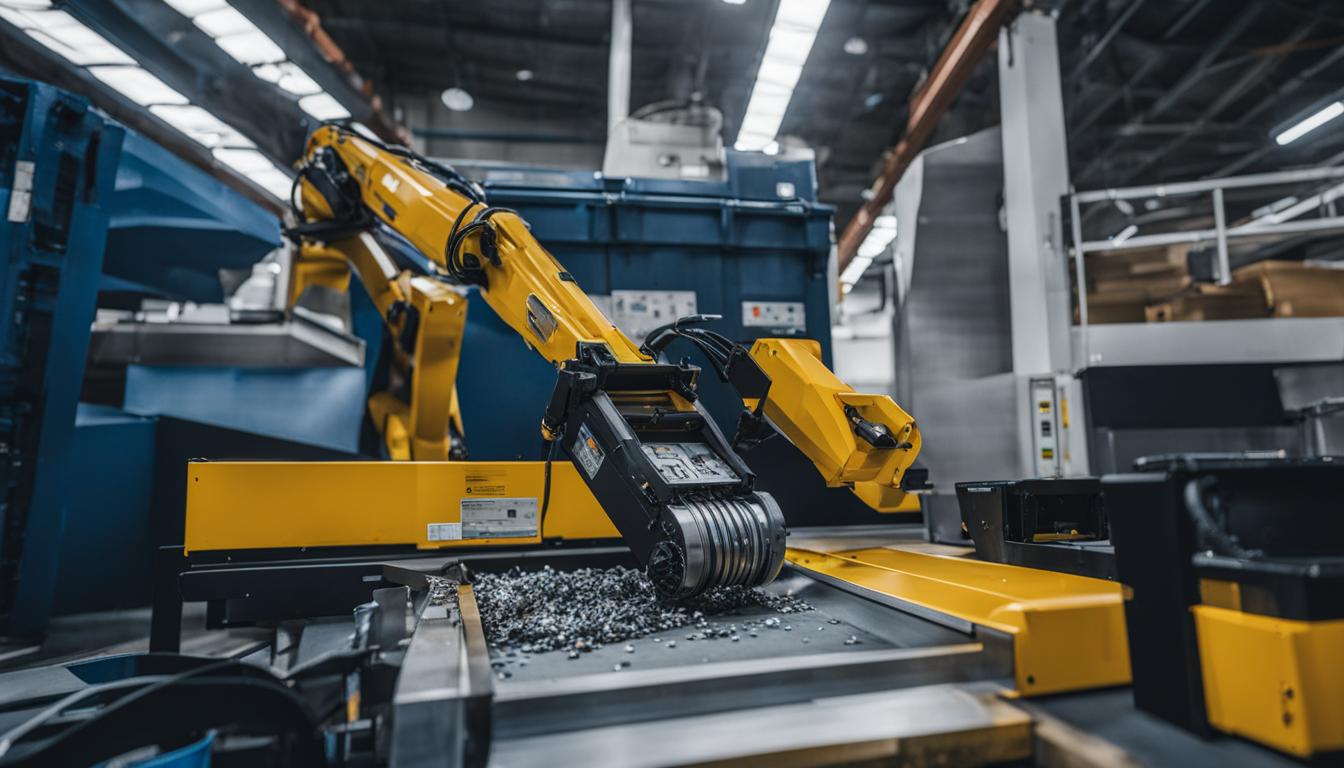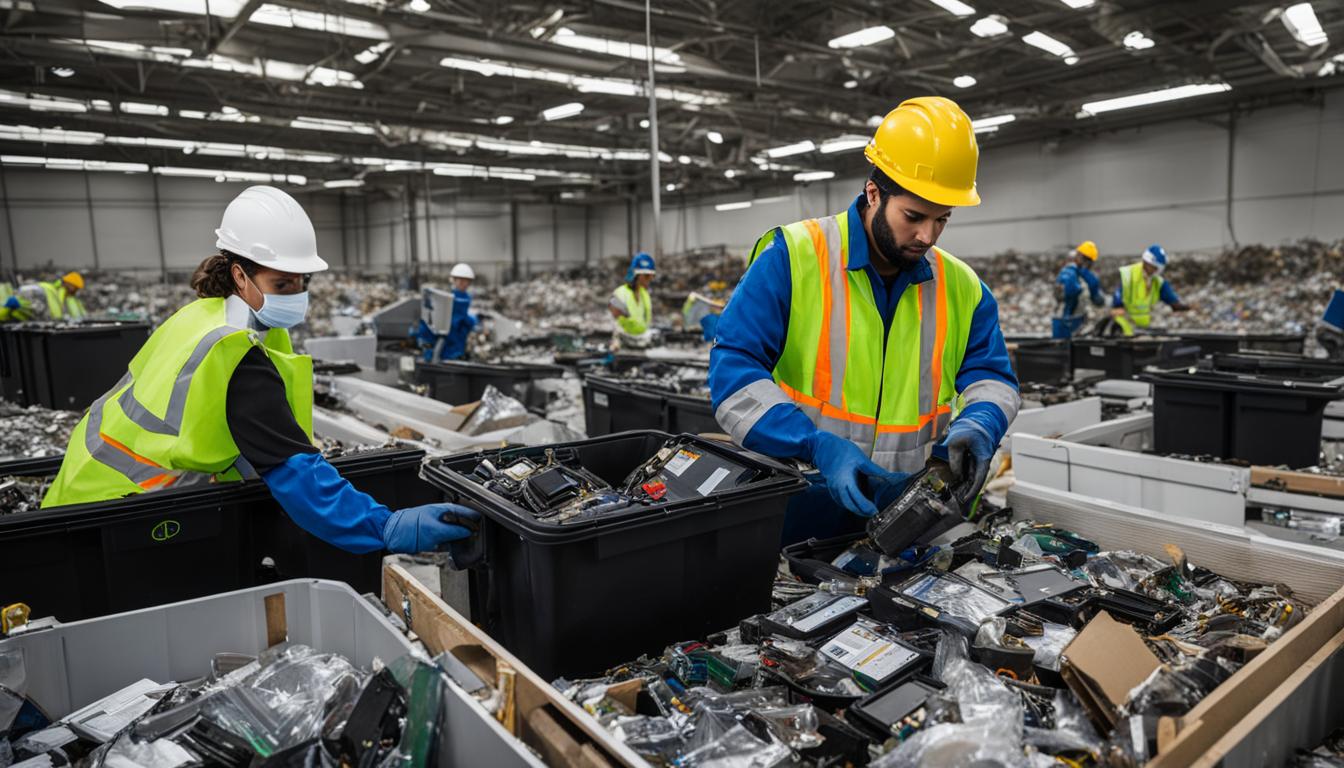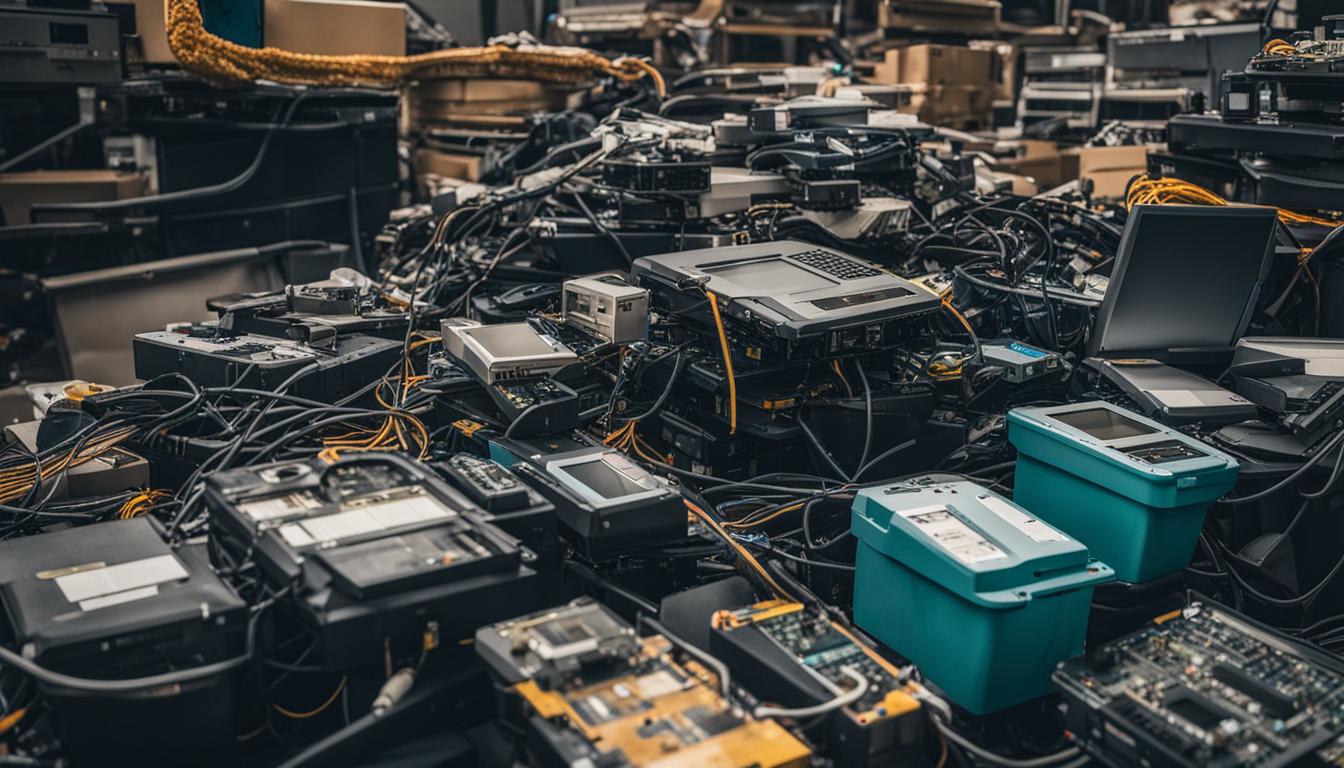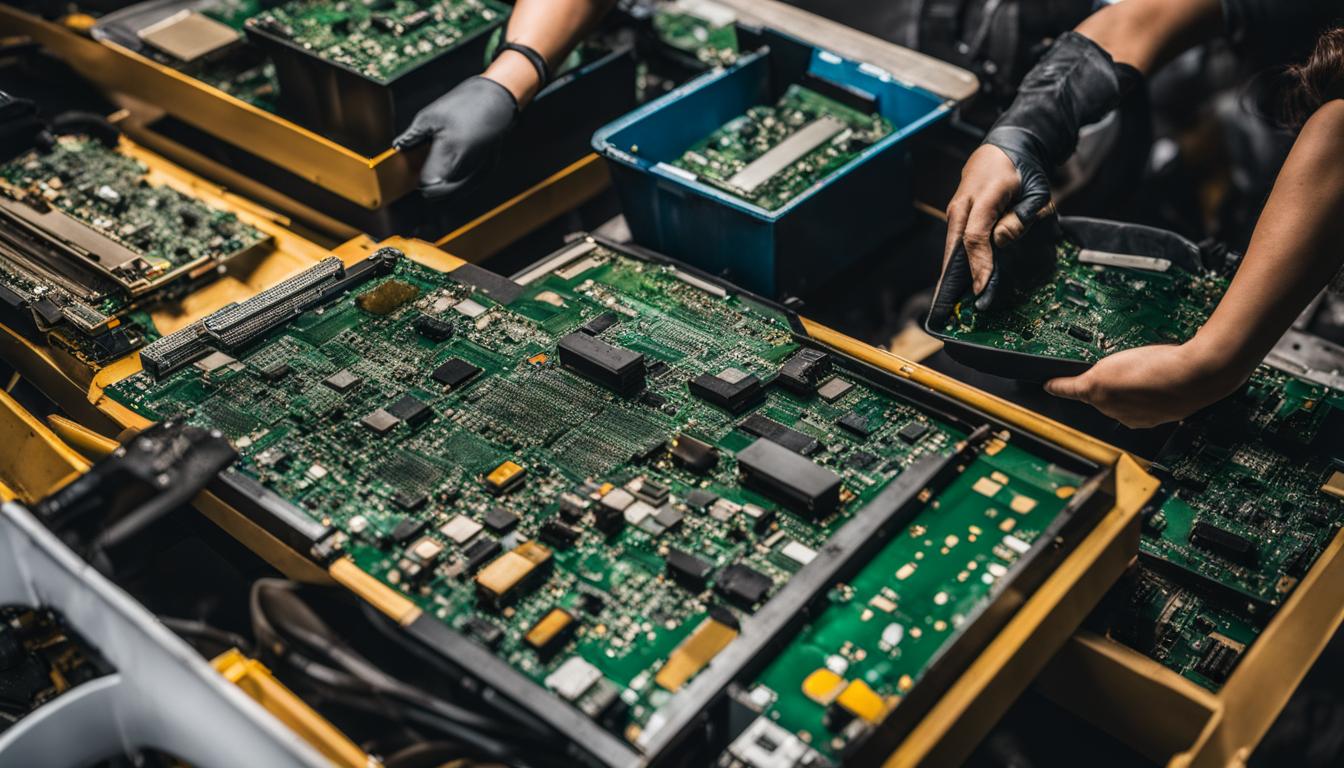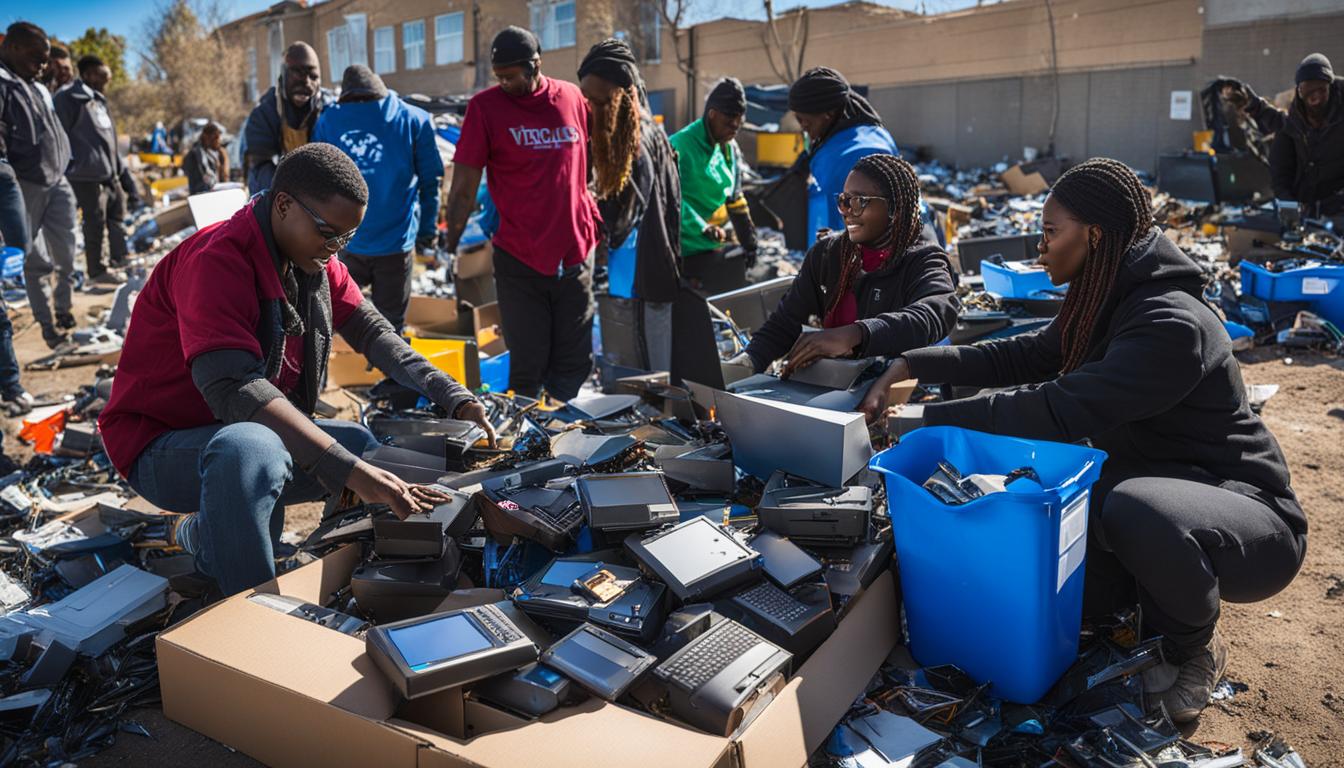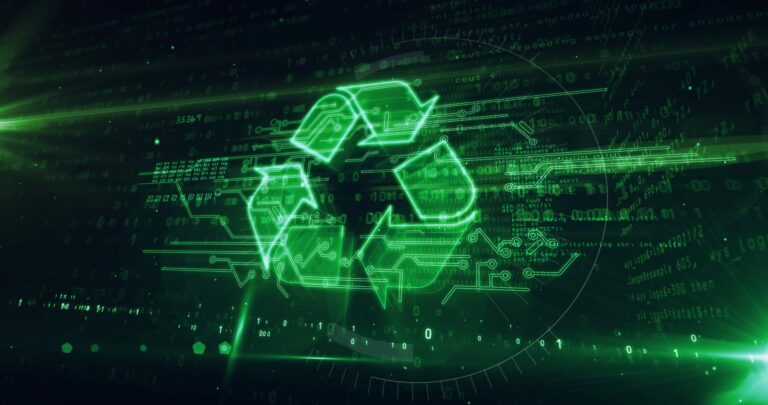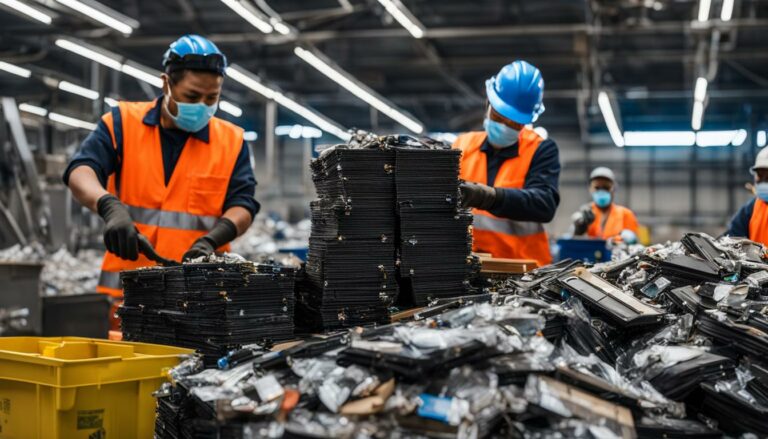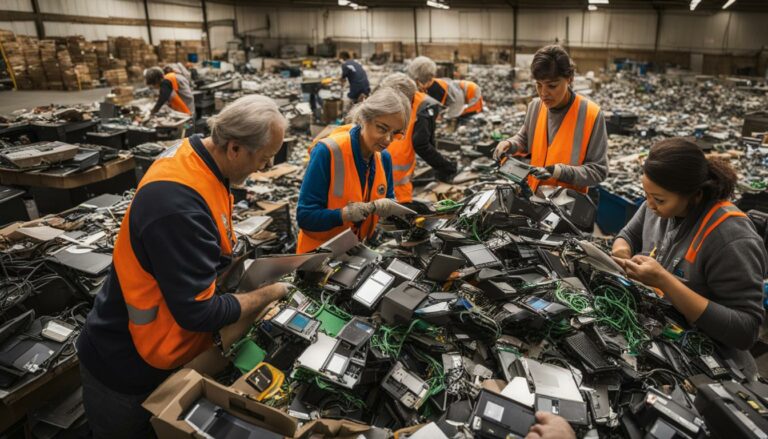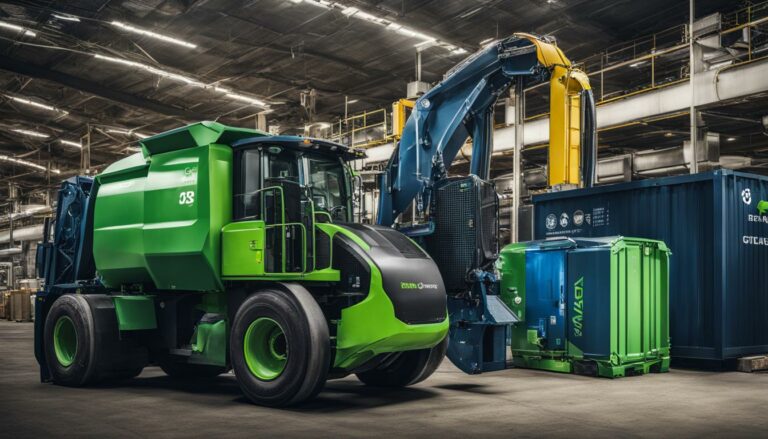The Role of Technology in Streamlining IT Recycling
Technology has had a significant impact on streamlining IT recycling processes. It has led to reduced waste generation by promoting recycling and reuse of materials. Smart waste bins with sensors have been introduced to track and monitor waste levels, leading to improved efficiency in waste collection and disposal. Technology has also made waste handling safer for workers, reduced the carbon footprint of waste management services, and enhanced data collection and analysis for better waste reduction efforts. The future of technology in waste management looks promising, with advancements in artificial intelligence and blockchain technology on the horizon.
Key Takeaways
- Technology plays a crucial role in streamlining IT recycling processes.
- Smart waste bins with sensors improve efficiency in waste collection and disposal.
- Technology makes waste handling safer for workers and reduces the carbon footprint of waste management.
- Data collection and analysis are enhanced, leading to better waste reduction efforts.
- The future of technology in waste management shows promise with advancements in artificial intelligence and blockchain technology.
Benefits of Technology in Waste Management Services
Technology plays a crucial role in improving waste management services, offering a range of benefits that contribute to waste reduction and efficient processes. By leveraging technology, waste management providers can achieve greater sustainability and create a cleaner environment.
Streamlined Waste Collection and Disposal
One of the key advantages of technology in waste management is automated waste collection systems. These systems utilize sensors and data analysis to optimize waste collection routes, reducing fuel consumption and increasing efficiency. By implementing these automated systems, waste management providers can minimize collection times and effectively manage waste disposal.
In addition to streamlining waste collection, technology also enhances the safety of waste handling processes. Automated systems reduce the need for manual labor in hazardous waste environments, minimizing the risk of worker exposure to dangerous substances. This technological intervention makes waste management services safer for employees and ensures compliance with health and safety regulations.
Improved Recycling and Waste Reduction
Technology has significantly improved recycling efforts, leading to increased waste reduction rates. Advanced waste sorting systems, incorporating artificial intelligence and infrared sensors, enhance recycling processes by accurately identifying and sorting recyclable materials. This technology drives higher recycling rates and reduces the amount of waste sent to landfills.
Furthermore, technology enables better data collection and analysis, allowing waste management providers to identify trends and patterns in waste generation. By understanding these patterns, providers can design targeted waste reduction strategies and implement initiatives to encourage responsible waste disposal behaviors among businesses and individuals.
Enhanced Data Collection and Analysis
Technology enables comprehensive data collection and analysis in waste management services, providing valuable insights for decision-making and strategy development. By collecting data on waste generation, collection, and disposal, providers can identify areas for improvement and track progress towards waste reduction goals. This data-driven approach enhances the efficiency and effectiveness of waste management practices.
Summary
Technology in waste management services brings numerous benefits, including streamlined waste collection and disposal, improved recycling efforts, and enhanced data collection and analysis. Automated waste collection systems optimize routes and increase efficiency, making waste management processes more sustainable. Advanced waste sorting technology improves recycling rates and reduces landfill waste. Data collection and analysis enable targeted waste reduction strategies and help track progress towards goals. Leveraging technology in waste management is essential for achieving a cleaner, greener future.
Key Technologies Streamlining Commercial Waste Management
Commercial waste management has benefited greatly from the implementation of various technologies that have streamlined waste handling processes. These technologies have revolutionized the way waste is collected, sorted, and disposed of, resulting in improved efficiency and sustainability. Let’s explore some of the key technologies that are making a significant impact in commercial waste management.
Sensor-Based Waste Management Systems
Sensor-based waste management systems have transformed the way waste is managed in commercial settings. These systems use sensors to monitor waste levels in bins, allowing waste management companies to optimize waste collection routes. By accurately tracking waste quantities, these systems ensure that bins are emptied only when necessary, reducing unnecessary collection trips and optimizing resource allocation. Sensor-based waste management systems result in cost savings, increased efficiency, and reduced environmental impact.
Waste Sorting Systems
Efficient waste sorting is crucial for achieving high recycling rates and minimizing landfill waste. Waste sorting systems utilize advanced technologies such as infrared sensors and artificial intelligence to automate the sorting process. These systems can identify different types of waste materials and sort them accordingly, ensuring that recyclable materials are separated for proper recycling. By automating waste sorting, these systems greatly enhance waste management efficiency and contribute to a more sustainable approach to waste handling.
Reverse Vending Machines
Reverse vending machines play a vital role in promoting recycling and reducing littering. These machines enable users to deposit empty beverage containers, such as plastic bottles and aluminum cans, and receive monetary or non-monetary incentives in return. Reverse vending machines encourage individuals to actively participate in recycling efforts by providing a convenient and rewarding way to dispose of their recyclable waste. By incentivizing recycling, these machines contribute to a cleaner environment and a more sustainable waste management system.
Waste Data Collection
Accurate data collection is essential for effective waste management strategies. Various technologies are employed to collect comprehensive data on waste generation, collection, and disposal. This data provides valuable insights into waste patterns, allowing waste management companies to identify areas for improvement and develop targeted waste reduction initiatives. By leveraging data-driven insights, waste management practices can be optimized, resulting in more efficient resource allocation and reduced environmental impact.
Waste-to-Energy Technologies
Waste-to-energy technologies present an innovative solution for reducing landfill waste and harnessing renewable energy sources. These technologies convert waste materials into usable energy, such as electricity or heat, through processes like incineration or anaerobic digestion. By transforming waste into energy, these technologies not only minimize the volume of waste sent to landfills but also provide a sustainable alternative to fossil fuel-based energy sources. Waste-to-energy technologies contribute to a circular economy by converting waste into a valuable resource.
| Technology | Advantages |
|---|---|
| Sensor-Based Waste Management Systems | – Optimized waste collection routes – Cost savings through efficient resource allocation – Reduced environmental impact – Enhanced efficiency in waste handling |
| Waste Sorting Systems | – Increased recycling rates – Minimized landfill waste – Streamlined waste management processes – Improved resource utilization |
| Reverse Vending Machines | – Encourages recycling participation – Reduces littering and promotes cleanliness – Provides convenient and rewarding recycling option – Contributes to a circular economy |
| Waste Data Collection | – Informed decision-making for waste management – Targeted waste reduction initiatives – Optimized resource allocation – Enhanced sustainability efforts |
| Waste-to-Energy Technologies | – Converts waste into a valuable energy source – Reduces landfill waste – Offers a sustainable alternative to fossil fuels – Contributes to a circular economy |
These technologies represent just a glimpse of the advancements in commercial waste management. As technology continues to evolve, we can expect further innovations that will enhance efficiency, sustainability, and environmental stewardship in waste management practices. By embracing these technologies, businesses can contribute to a cleaner and greener future.
Introduction of Digitalization in the Waste Management Sector
Digitalization has had a profound impact on the waste management sector, revolutionizing the way waste is disposed of and managed efficiently. One significant area where digitalization has made a significant impact is in the recycling of LCD screens and electronic devices. With the introduction of digitalization in waste management practices, the recycling and reusing of these electronic devices have become more streamlined and environmentally friendly.
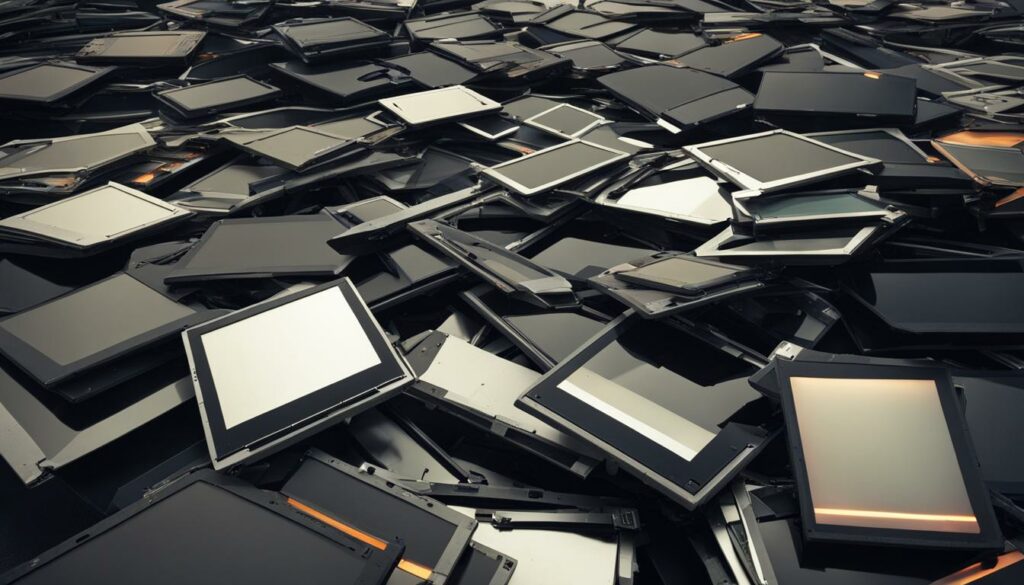
The recycling of LCD screens and electronic devices not only reduces the amount of waste that ends up in landfills but also offers a cost-effective solution for waste management. By salvaging and reusing components from old devices, the waste management sector can minimize the need for new production, leading to resource conservation and reduced environmental impact.
Overall, the introduction of digitalization in waste management has brought about more efficient and sustainable waste disposal practices, particularly in the recycling of LCD screens and electronic devices. It offers a solution that benefits both the environment and the economy, paving the way for a greener and more sustainable future.
Top 5 Benefits of Digitalization for the Waste Management Sector
Digitalization has revolutionized the waste management sector, bringing numerous benefits and transforming the way waste is handled and managed. By embracing technology and automation, waste management services have become more efficient, cost-effective, and environmentally friendly.
1. Enhanced Recycling
The introduction of digitalization has significantly enhanced recycling efforts in the waste management sector. Advanced technologies, such as automated waste sorting systems utilizing artificial intelligence and machine learning, have improved recycling rates and reduced waste sent to landfills. These systems can efficiently identify and sort different types of waste, ensuring that recyclable materials are properly separated for recycling processes, contributing to a more sustainable waste management approach.
2. Data Collection and Analysis
One of the key advantages of digitalization in waste management is the ability to collect and analyze data related to waste generation, collection, and disposal. Digital technologies enable the tracking and monitoring of waste management processes, providing valuable insights for waste reduction strategies and optimization of waste collection routes. Data analysis helps identify areas where waste can be reduced, leading to more efficient waste management practices and improved environmental outcomes.
3. Automation and Increased Efficiency
Automation plays a crucial role in streamlining waste management processes, improving efficiency, and saving time and effort. Automated waste collection systems have replaced manual collection methods, reducing human error and optimizing waste collection routes. With digitalization, waste management operations can be automated, from waste collection to disposal, ensuring tasks are completed efficiently and effectively. This increased efficiency allows waste management services to handle larger volumes of waste and deliver faster and more reliable services.
4. Cost Savings
Digitalization in waste management also contributes to cost savings for both waste management services and businesses. By automating processes and optimizing waste collection routes, operational costs are reduced. Additionally, efficient data collection and analysis help identify cost-saving opportunities and reduce unnecessary expenses. With digitalization, waste management services can allocate resources more effectively, leading to significant cost savings in the long run.
5. Improved Safety and Sustainability
Another benefit of digitalization in waste management is improved safety for workers and enhanced sustainability. By automating waste handling processes, workers are exposed to fewer hazardous waste materials, reducing the risks associated with manual waste management tasks. Additionally, digitalization enables the implementation of sustainable waste management practices, such as waste-to-energy technologies, where waste is converted into renewable energy sources, further reducing the environmental impact of waste disposal.
| Benefits of Digitalization | Summary |
|---|---|
| Enhanced Recycling | Improved recycling rates and reduced waste sent to landfills through advanced waste sorting systems. |
| Data Collection and Analysis | Insights gained from data analysis aid in waste reduction strategies and optimization of waste collection routes. |
| Automation and Increased Efficiency | Automation streamlines waste management processes, improving efficiency and saving time and effort. |
| Cost Savings | Optimized resource allocation and data-driven cost-saving opportunities lead to significant savings. |
| Improved Safety and Sustainability | Reduced worker exposure to hazardous waste and implementation of sustainable waste management practices. |
Challenges Facing the Implementation of Digitalization in the Waste Management Sector
Digitalization in the waste management sector presents several challenges that need to be addressed for successful implementation. These challenges include the cost of implementation, unexpected occurrences, and security concerns.
The cost of implementing digitalization can be significant for waste management organizations. It requires investment in equipment, software, and training for employees. However, the long-term benefits and cost savings of digitalization often outweigh the initial expenses.
Another challenge is the possibility of unexpected occurrences, such as equipment malfunctions or data breaches. Waste management companies must have contingency plans in place to mitigate these risks and ensure that the digitalization process continues smoothly.
The security of waste management data and systems is also a major concern. With the increasing reliance on digital technologies, protecting sensitive information from unauthorized access and potential hacking becomes crucial. Robust security measures and protocols should be implemented to safeguard against these threats.
| Challenges | Descriptions |
|---|---|
| Cost of Implementation | The cost of implementing digitalization can be significant, requiring investment in equipment, software, and training for employees. |
| Unexpected Occurrences | Equipment malfunctions and data breaches are unexpected occurrences that can disrupt the digitalization process. Contingency plans should be in place to address these risks. |
| Security Concerns | Protecting waste management data and systems from unauthorized access and potential hacking is a critical security concern that needs to be addressed. |
The Future of Waste Management: Embracing Digitalization
The future of waste management lies in embracing digitalization. Technology has already revolutionized the waste management industry, making it more efficient, safer, and environmentally friendly. As we move forward, further advancements in technology will continue to shape the way we manage waste, leading to more sustainable practices.
One key aspect of the future of waste management is the continued integration of technology in waste collection and sorting processes. Automation, powered by artificial intelligence and machine learning, will further streamline waste collection, making it faster and more precise. Smart waste bins with sensors will become even smarter, optimizing waste collection routes and ensuring bins are emptied only when necessary. This not only improves efficiency but also reduces labor and fuel costs, contributing to overall cost savings in waste management.
Another area where digitalization will play a crucial role is in enhancing recycling efforts. With improved data collection and analysis, waste management companies will be able to identify patterns and trends in waste generation, allowing for targeted recycling programs. The use of blockchain technology is also being explored to ensure the traceability and accountability of recycled materials, promoting a circular economy and sustainable waste management practices.
Furthermore, digitalization will enable real-time monitoring and reporting of waste management activities, ensuring compliance with regulations and helping companies track their progress towards waste reduction goals. This data-driven approach will empower waste management companies to make informed decisions, optimize their operations, and continuously improve their sustainability practices.
| Benefits of Embracing Digitalization in Waste Management | Impact |
|---|---|
| Efficient waste collection and sorting | Increase in productivity and cost savings |
| Enhanced recycling efforts | Reduction in waste sent to landfills and promotion of a circular economy |
| Real-time monitoring and reporting | Compliance with regulations and better waste reduction tracking |
| Data-driven decision making | Optimization of operations and continuous improvement of sustainability practices |
Overall, embracing digitalization in waste management is vital for a sustainable future. By harnessing the power of technology, we can optimize waste collection and sorting, increase recycling rates, and minimize our impact on the environment. The future of waste management is not only about adopting new technologies, but also about changing mindsets and embracing a more sustainable approach to waste management.
Conclusion
Technology has revolutionised waste management practices, making them more efficient, safer, and environmentally friendly. It has played a crucial role in reducing waste generation, promoting recycling and reuse of materials. With the introduction of smart waste bins and sensors, waste collection and disposal have become more streamlined and efficient.
By embracing digitalisation, waste management practices have greatly benefited from automation, enhanced recycling efforts, and improved data collection and analysis. These advancements have led to increased recycling rates, reduced waste sent to landfills, and better waste tracking for more effective waste management strategies. Moreover, digitalisation has resulted in cost savings by optimising waste collection routes and reducing the time and effort required for waste management.
Despite the challenges, such as the cost of implementation and security concerns, digitalisation is essential for achieving sustainable waste management practices. As technology continues to advance, waste management can become even more efficient, cost-effective, and environmentally friendly. By embracing digitalisation, we can work towards a greener planet and ensure a sustainable future for generations to come.
FAQ
What role does technology play in IT recycling?
Technology has had a significant impact on streamlining IT recycling processes, reducing waste generation by promoting recycling and reuse of materials.
How has technology improved waste management services?
Technology has improved waste management services by reducing waste generation and litter through recycling and reuse, enhancing efficiency through automated waste collection systems, and making waste handling safer for workers.
What are some key technologies used in commercial waste management?
Key technologies used in commercial waste management include sensor-based waste management systems, automated waste sorting systems, reverse vending machines, waste data collection technologies, and waste-to-energy technologies.
How has digitalization impacted waste disposal practices?
Digitalization has revolutionized waste disposal practices by enabling the recycling and reuse of electronic devices and screens, reducing landfill waste and providing cost-effective solutions.
What are the benefits of digitalization for the waste management sector?
The benefits of digitalization in the waste management sector include automation, enhanced recycling efforts, improved data collection and analysis, cost savings, and increased efficiency.
What challenges are faced in implementing digitalization in waste management?
Challenges in implementing digitalization in waste management include the cost of implementation, unexpected occurrences such as data breaches and equipment issues, and security concerns regarding the protection of waste management data and systems.
What is the future of waste management?
The future of waste management lies in embracing digitalization, with advancements in artificial intelligence and machine learning, as well as the exploration of blockchain technology to ensure safe and responsible waste management practices.

